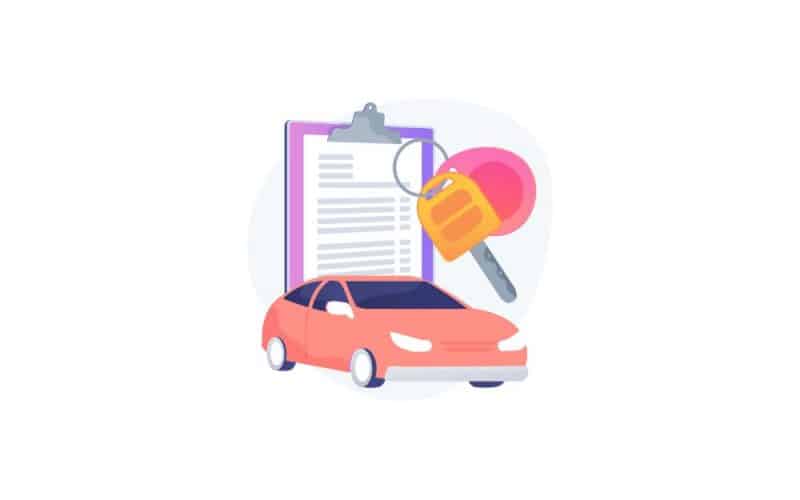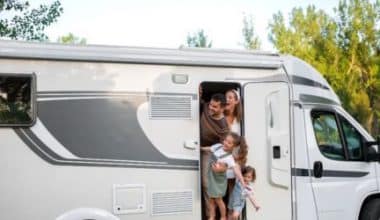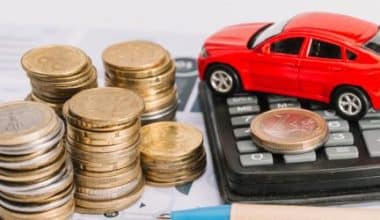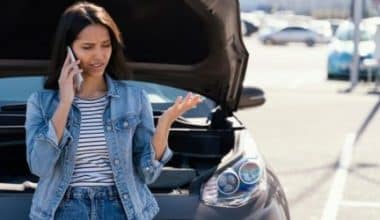There are several reasons why someone without a driver’s license might need car insurance. For example, due to age or health problems, you might no longer drive but still own a car that a family member drives to take you to appointments. Or you might have a suspended license and have a court order to get car insurance.
One of the best ways to get car insurance when you have no license is to buy a policy and list yourself as an excluded driver. Another option is to get parked car insurance if you won’t be driving your car at all. And if your license is suspended, you can get SR-22 insurance instead.
However, whichever option you choose, you won’t be covered for damage if you do drive your car.
Buying insurance coverage while you don’t have a license can help protect against damage to your car while it’s in storage. It can also prevent a lapse in coverage on your personal record and cover your car when someone else drives it.
Can I get car insurance without a driver’s license?
While some insurance companies will decline coverage to someone without a driver’s license, other insurers will extend coverage. However, the downside is that it may cost you significantly more than a licensed driver.
That’s because car insurance companies look at the last three to five years of your driving record when setting rates. If you do not have a driving record, had your license suspended, or have not had a license for a number of years, you’ll generally be seen as a higher risk, which usually means higher car insurance rates.
Another reason you can expect to pay more is because insurers see an insurance “coverage gap” as a higher risk. This is a period of time when you don’t have insurance, for instance, if you didn’t have insurance because you canceled a policy before a new one was in place or you were between cars. Generally, a driver who has continuous coverage will pay less than someone who has a coverage gap.
Why do insurance companies prefer licensed drivers?
Having a valid driver’s license is the easiest way for an insurer to access your driving record. When calculating your insurance quotes, providers look at your driving history and other factors to determine how risky you would be as a policyholder. Without a valid driver’s license number, providers have a harder time accessing your records.
That’s why insurance companies generally look at unlicensed motorists as high-risk drivers.
Reasons to get car insurance with no license
Since getting an auto policy without a license can be difficult, it’s a good idea to work with a local agent who can help you navigate the application process and find the best car insurance companies to suit your needs.
Here are some common reasons you might need car insurance without a driver’s license.
You can no longer drive
If you are disabled or no longer able to drive, you might own a car for transportation but have someone else drive you, such as a family member or caregiver. But as an unlicensed driver listed on the policy, you could face higher rates.
One option might be to buy an insurance policy, list your driver as the primary operator, and make yourself an “excluded driver.” The upside of listing yourself as an excluded driver is that you won’t have higher rates as a listed unlicensed driver. The downside is that if you do drive your car and get into a car accident, you won’t have any coverage.
The rules for excluded drivers vary by insurance company and state. Some states will not allow driver exclusions. If driver exclusions are allowed in your state, you’ll need to complete a “named driver exclusion” form.
You are insuring a car for a minor
Many lenders won’t extend an auto loan to drivers under age 18, which can make it difficult for a minor to buy a car. In this scenario, you might buy a car (or take out a loan) to help a young driver, even though you don’t have a license or intend to drive the car yourself.
You may be able to list yourself as an excluded driver on the auto insurance policy and list your teen driver as the primary operator. But again, the rules for excluding a driver vary by state and company.
You are a car collector or storing a vehicle
There’s no law that says someone without a driver’s license can’t collect cars. For example, you bought a classic car to restore and do not intend to drive it on public roads.
If you own a vintage, antique, or replica vehicle, it’s worth looking into classic car insurance. Some classic car insurance companies sell coverage types that cover spare parts and automotive tools, and “vehicle under construction” coverage that periodically increases your coverage limits to keep pace with your restoration work.
If you are storing a car that doesn’t qualify as a classic vehicle, you’ll still want car insurance. A comprehensive coverage-only policy might be a good fit for you. Comprehensive insurance covers problems like fires, floods, hail, vandalism, theft and falling objects.
But keep in mind, a comprehensive-only policy is not sufficient coverage if your car is driven on public roads. Most states require liability car insurance if the car is driven. This coverage pays for property damage and injuries to others. If you or someone driving your car causes an accident without liability insurance, you could face a financial disaster.
Your driver’s license has been suspended or revoked
If your license has been suspended or revoked due to your driving records, such as a DUI conviction or too many traffic violations, your state or a court order might require you to get “SR-22 insurance.”
An SR-22 is a form that your insurance company must file with your state that shows you have at least the state’s minimum car insurance requirements. A good way to satisfy an SR-22 requirement, if you don’t own a car, is by purchasing non-owners car insurance.
How to get car insurance with no license
Here are some ways to insure your vehicle without a driver’s license:
Shop around with smaller, regional companies
If you want to insure a car without a driver’s license, you’ll likely need to shop around with smaller, regional car insurance companies. It’s usually best to contact these companies in person or over the phone to explain your situation and get a more accurate quote.
If you don’t want to contact each company yourself, consider recruiting an insurance broker or independent agent. Brokers and independent agents work with multiple insurers and can track down the best policy tailored to your needs.
You’re unlikely to get coverage from the bigger insurance brands because many national insurers don’t give quotes to unlicensed drivers. They need a driver’s license number to check your driving history before deciding how big of a risk you are, so even if you can get a quote, you’ll likely need to call and speak to someone.
Take note: As an unlicensed driver, insurance companies likely consider you a “high-risk driver,” especially if you’re a new driver or have a recent DUI or other serious traffic violation on record. Be prepared to pay higher premiums.
What if I need an SR-22 form?
Even though it might be called “SR-22 insurance,” an SR-22 form isn’t actually an auto insurance policy. It’s an official document to prove you’ve bought the minimum liability insurance required in your state. The SR-22 form may also be called a certificate of financial responsibility.
With an SR-22, insurance companies assure your state’s motor vehicle or insurance department that you’ll maintain coverage for a certain period of time. If you don’t, the insurer will alert your state, and your driver’s license could be suspended or revoked.
Having to file an SR-22 is no one’s idea of fun. You’ll pay higher car insurance premiums than a driver with a clean record and you’ll be limited in your choice of insurers. But shopping around for the cheapest rates can help.
If you’ve recently been charged with a serious traffic violation or series of violations, you might need an insurer to file an SR-22 form with your state on your behalf (you’ll be notified in court or by your state if you do). Also known as a “certificate of financial liability,” this form is proof to your state that you carry at least the minimum amount of liability insurance required there.
If you’re seeking auto insurance with no license and need to file an SR-22 or FR-44 form, your choice of insurance companies may be even more limited. This is because not every company does it.
Make someone else the primary driver
If you want to insure a vehicle that will be on the road, but you won’t be the one driving it, you’ll have to designate someone else as the “primary driver” on your policy.
A primary driver is simply the person who will drive your car the most. You can designate anyone as a primary driver, so long as they have an active driver’s license or learner’s permit.
The driving record, age and other personal details of all drivers listed on your policy influence your auto insurance rates. So even though you have insurance, if you cause an accident, you’ll be left footing the bill for any damages (on top of any legal consequences that come with driving unlicensed).
Your auto insurance rates will be affected by the driving record, age and other personal details of all drivers listed on your policy. So if your primary driver is a teenager or has a spotty driving record, expect to pay a lot for car insurance.
Get ‘parked car insurance’
If you don’t have a license but own a car that’s just going to sit parked or in storage, consider getting comprehensive-only insurance, also known as “parked car insurance” or “car storage insurance.” This insurance reimburses you for damages from events outside of your control, such as someone stealing your car or a surprise hailstorm damaging your windshield. It won’t cover you for driving-related accidents.
If you want to avoid a lapse in coverage and you know you won’t be driving for a while, parked car insurance may be a good option. Since you’re only paying for comprehensive insurance on a parked car, the policy will be cheaper than if you bought full-coverage car insurance.
Take note: To qualify for parked car insurance, some companies may require your car to be in storage for a certain amount of time beforehand (commonly 30 days).
Change your car’s registration to get insurance
If you can’t find an insurer who will sell you a policy because you don’t have a license, you may consider adding a licensed driver as the co-owner of your vehicle on the registration. This will likely increase the chances of getting your vehicle insured, as vehicle ownership is a common requirement for getting car insurance.
Changing your vehicle’s registration to reflect the change in ownership is fairly simple, and it usually involves visiting your local DMV, filing a form, and paying a fee.
How to get car insurance with a suspended license
If your license is suspended, your options differ from those of other drivers who have never had a driver’s license or have had it revoked. License suspension is often a consequence of a serious traffic ticket, such as driving under the influence (DUI) or driving without insurance. If this is the case for you, typically you must get SR-22 insurance to reinstate your driving privileges.
If you’re looking to save money while your license is suspended, consider getting parked-car insurance or a nonowner policy instead of canceling your policy altogether. By keeping comprehensive insurance, you can avoid a lapse in coverage, which can cause the most reputable insurance companies to increase your rate in the future or deny you coverage outright.
Recommended Articles
- HOW TO SHOP FOR CAR INSURANCE: Easy Methods & Steps
- Best Car Warranty Companies For 2023: Reviewed
- Can You Insure a Car Not in Your Name: Everything You Need
- Car Insurance Calculator: How To Estimate Your Cost
- HOW DOES CAR INSURANCE WORK: The Complete Guide
- CHEAPEST CAR INSURANCE NO DOWN PAYMENT 2023






